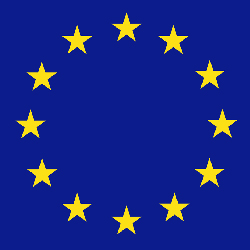Tax
GUEST ARTICLE: Looking Beneath The Surface Of An EU Tax Ruling - Geneva Professor

Corporate tax wrangles in the EU have wider lessons, and the Apple case highlights aspects of the US tax system that are worth noting, the author of this article argues.
Philippe Braillard, emeritus professor at the University of
Geneva, has already been published
several
times by this news service discussing areas
such as financial privacy and the Panama Papers saga. On this
occasion, Professor Braillard discusses implications of the
European Commission’s recent demand that Apple pay billions of
euros in tax to the Irish government, despite the Irish
government actually not wanting such payment if it means its
low-tax attractions are undermined. The saga highlights how the
EU is, or is seen to be, eroding fiscal sovereignty of member
states – a fact that was seized upon by proponents of Brexit in
the UK recently.
As is always the case, the views of guest authors are not
necessarily shared by the editors of this publication; such
contributions are most welcome and we invite readers to respond.
This article was initially published in French in the Swiss
newspaper Le Temps and in German in Finanz und Wirtschaft, and is
reprinted here with the author’s consent.
The European Commission's recent tax ruling on US multinational Apple, ordering it to pay a penalty of €13 billion ($14.5 billion), shows a clear desire to stop overly aggressive tax avoidance strategies used extensively by multinationals. The ruling seems entirely consistent with the OECD's base erosion and profit shifting (BEPS) programme. However, it also has a political dimension that should be highlighted.
The Commission is criticising Apple for having benefited from an
enormous tax break, after setting up two subsidiaries in Ireland
and forming agreements with the Irish government in 1991 and
2007. Apple's tax rate was apparently 1 per cent in 2003, and
even as low as 0.005 per cent in 2014. For the European
Commission, such arrangements, under which a company receives
special tax treatment, breach European rules banning state
aid.
Dublin strongly opposes the Commission's ruling, which is only
natural because Ireland's attractive tax rules have been a
central part of its economic strategy for around 40 years now.
Foreign companies account for almost a quarter of private-sector
employment in Ireland. Dublin disputes the notion that Apple has
received any preferential treatment, and fears that this Brussels
ruling will damage its economic development model by dissuading
foreign companies from continuing to invest in the
country.
The Irish government is also accusing the European Commission of
applying a new interpretation - of the transfer pricing principle
regarding trading between a multinational's various entities -
retrospectively to agreements formed 25 years ago between the
Irish state and Apple. Finally, Ireland wants to defend its tax
sovereignty, reminding observers that it has reformed its tax
policy in recent years by removing arrangements that allow
multinationals to gain unfair tax breaks, i.e. by eliminating
cases of "stateless companies" and banning the "double Irish", a
tax avoidance strategy used by certain US multinationals.
The European Commission, meanwhile, has jurisdiction over
competition policy matters and its remit includes combating
unjustified and unfair state aid. That is why it has decided to
reclassify the tax agreement between the Irish state and Apple as
state aid. It believes that, through this tax ruling, it is
asserting itself against a powerful US multinational, striking a
welcome blow against tax optimisation strategies. However,
following the Brexit vote, there is concern that this
interventionist approach, infringing a member state's tax
sovereignty, will strengthen the centrifugal forces that exist
within the European Union. It also threatens to disrupt the
international consensus within the OECD regarding BEPS transfer
pricing rules. The concern is especially great given that the
ruling forms part of an obvious trend within the EU towards
protectionism in tax matters, as shown by the new Anti Tax
Avoidance Directive (ATAD) and its Controlled Foreign Companies
(CFC) rules.
As regards the US, the Brussels ruling has prompted angry
responses from politicians, accusing the Commission of acting
like a supranational tax authority and criticising it for
targeting mainly US companies. Some members of Congress have even
gone so far as to demand the introduction of double taxation on
European companies in retaliation. The US attitude also shows a
high level of protectionism in tax matters, aimed at preserving
the US tax base. Looking beyond the specific case of Apple,
Washington believes that the European Commission's policy could
allow it to get its hands on part of the $2,400 billion of
profits amassed by US companies in foreign countries, but which
have not yet been repatriated to the US.
If US companies were to repatriate those profits, they could
deduct tax paid to European tax authorities from the amount of US
tax they would have to pay. The Apple case and the reaction it
has prompted in the US therefore stem partly from the nature of
the US tax system: profits made anywhere in the world are taxed
at a high rate, but tax on non-repatriated profits is
suspended.
They show the perverse effects of the US system and the need to
reform it. Finally, while showing a level of pragmatism that the
Swiss authorities would sometimes do well to emulate, the affair
shows up certain contradictions in US policy. On the one hand,
the US projects its laws extraterritorially, but on the other, it
fights tooth and nail to defend the interests of US companies
when they are threatened by foreign tax authorities.